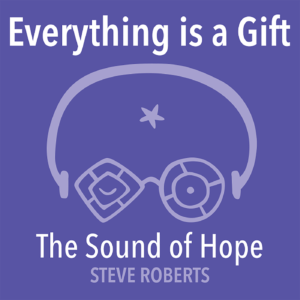Sixty five years ago, E.E. Cummings (1894-1962), also known as e.e. Cummings (in the style of some of his poems), an American artist of diverse genres, was invited by his alma mater, Harvard, to deliver the 1952-53 school year Charles Eliot Norton Lectures, a series of six presentations. In the first lecture, Cummings speaks of his childhood: “…I was welcomed as no son of any king and queen was ever welcomed.” To be the child of his parents was, for Edward Estlin Cummings, “…my joyous fate and my supreme fortune.”
But today is Mother’s Day 2017. Given the invitation to reflect on mothering in all the many forms we require it, hunger for it, and give it, so that our body and soul may thrive, here is a story Cummings told about his mother:
It isn’t often you meet a true heroine. I have the honour to be a true heroine’s son.
My father and mother were coming up from Cambridge to New Hampshire, one day, in their newly purchased automobile––an air-cooled Franklin, with an ash frame. As they neared the Ossippees, snow fell. My mother was driving; and, left to herself, would never have paused for such a trifle as snow. But as the snow increased, my father made her stop while he got out and wiped the windshield. Then he got in; and she drove on. Some minutes later, a locomotive cut the car in half, killing my father instantly. When two brakemen jumped from the halted train, they saw a woman standing––dazed but erect––beside a mangled machine; with blood “spouting” (as the older one said to me) out of her head. One of her hands (the younger added) kept feeling of her dress, as if trying to discover why it was wet. These men took my sixty-six year old mother by the arms and tried to lead her toward a nearby farmhouse; but she threw them off, strode straight to my father’s body, and directed a group of scared spectators to cover him. When this had been done (and only then) she let them lead her away.
A day later, my sister and I entered a small darkened room in a country hospital. She was still alive––why, the head doctor couldn’t imagine. She wanted only one thing: to join the person she loved most. He was very near her, but she could not quite reach him. We spoke, and she recognized our voices. Gradually her own voice began to understand what its death would mean to these living children of hers; and very gradually a miracle happened. She decided to live.
“There’s something wrong with my head” she kept telling us faintly; and she didn’t mean the fracture of her skull. As days and nights passed, we accidentally discovered that this ghastly wound had been sewn up by candlelight when all the town lights went out at once. But the head doctor had no intention of losing his patient––“move her?” he cried “impossible! It would kill her just to sit up” and several centuries wandered away before we found a method of overruling him. When the ambulance arrived, ready to transfer my mother to a big Boston hospital, she was sitting up (fully dressed and smiling) by the entrance-door. She admired the ambulance, conversed cheerfully with its chauffeur, and refused to lie down because by doing so she’d miss the scenery en route.
We shot through towns and tore through cities. “I like going fast” she told us; beaming. At last came the goal. After an interminable time in an operating room––where (we learned later) she insisted on watching in a hand mirror whatever was happening, while a great brain-surgeon removed a piece of bone and carefully cleansed the wound––up came mother in a wheelchair; very erect, and waving triumphantly a small bottle in which (at her urgent request) he’d placed the dirt and grime and splinters of whose existence his predecessor had been blissfully unaware. “You see?” she cried to us, smiling, “I was right.”
And, though the wound had later to be reopened, she came out of that hospital in record time; recovered completely at home in a few months––attending, now and then, a nearby meeting of The Society of Friends––then boarded a train alone for New York, and began working as a volunteer for the Travellers’ Aid in the Grand Central Station.
“I’m tough!” was her dauntless comment when we tried to express our amazement and our joy.
Mothering comes to us in all sorts of ways, including a story of someone else’s mother who died long ago, or a photo of a shrine celebrating one mother’s reverence for her son and his wife. That’s because our experience of mothering is only incidentally about our relationship with the woman who ushered us into the world. Even if we have the greatest mom in town, we have only to consider the infinite forms of nurturing that regularly remind us who we really are. A touch, a word, a sight, a song: all those blessings that give us the security of integrity and the freedom to find our own way. And so we learn: none of us can ever have too much mothering.





Leave a Reply